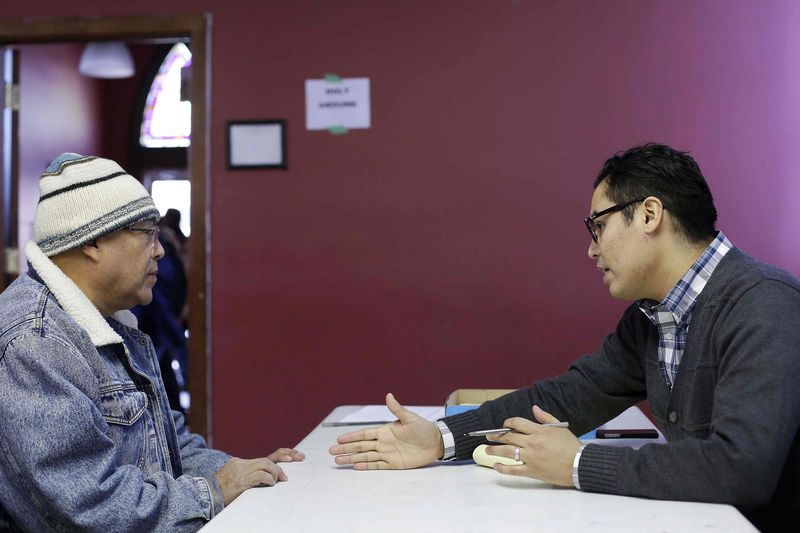By Fiona Ortiz
CHICAGO (Reuters) - Honduran immigrant Maria Mejia just spent the weekend knocking on doors in Chicago's Albany Park neighborhood, telling her Central American neighbors that she shares their fear and wants them to know their rights in case immigration agents come to the door with a deportation order.
"I'm scared I could be deported," said Mejia, a 30-year-old housewife, who crossed the border with her two children in 2014 to seek economic opportunity but also because of fear of crime.
Mejia is fighting her deportation order in immigration court and she went door to door to let others know they can do the same.
Similar campaigns are going on in cities from Boston to Richmond, California, as activists, legal aid organizations and immigrant groups react to the United States government's recent announcement it would step up deportations of families that arrived since May 2014, when there was a surge of women and children arriving from El Salvador, Guatemala and Honduras, many fleeing drug gang violence.
Immigration is an issue at the forefront of the 2016 U.S. presidential race, with Republican candidates pledging tough measures to keep new immigrants out. Courts also have blocked President Barack Obama's executive orders making more undocumented immigrants eligible for work authorization.
"We're here to tell you not to open the door," Mejia and two Guatemalan volunteers with her told one Spanish-speaking woman who cautiously opened the door of her basement apartment.
Immigration lawyers say a deportation order is not an arrest order and people do not have to open the door to immigration agents.
"You have rights," Mejia said as her 12-year-old son handed the woman fliers about an upcoming legal clinic.
Hundreds of families in Chicago could meet the criteria for deportation since the Department of Homeland Security said it was targeting adults and children apprehended at the border and who were allowed into the country but who have now been issued final deportation orders, said Lawrence Benito, executive director of the Illinois Coalition for Immigrant and Refugee Rights, an advocacy group.
During the first weekend of the year, immigration authorities detained 121 adults and children in Texas, Georgia and North Carolina who met the new priority criteria, and said they will continue such operations.
Immigration attorneys say people can still appeal for delays on a final deportation order while they apply for refugee or other legal status, even if the order was issued in absentia by a judge because they did not show up for an immigration hearing.
A number of the families detained in southern states around New Year's have been able to get emergency stays of their deportations, an immigration official said.
At a Sunday gathering of a few dozen immigrants at a workshop in a south-side Chicago basement, bilingual lawyer John Antia explained their rights. "Do you have to open the door? No. Do you have to talk? No," he said.

He urged people to memorize key phone numbers so that they can seek legal aid if detained and cautioned them that they should not be pressured into signing a voluntary departure.